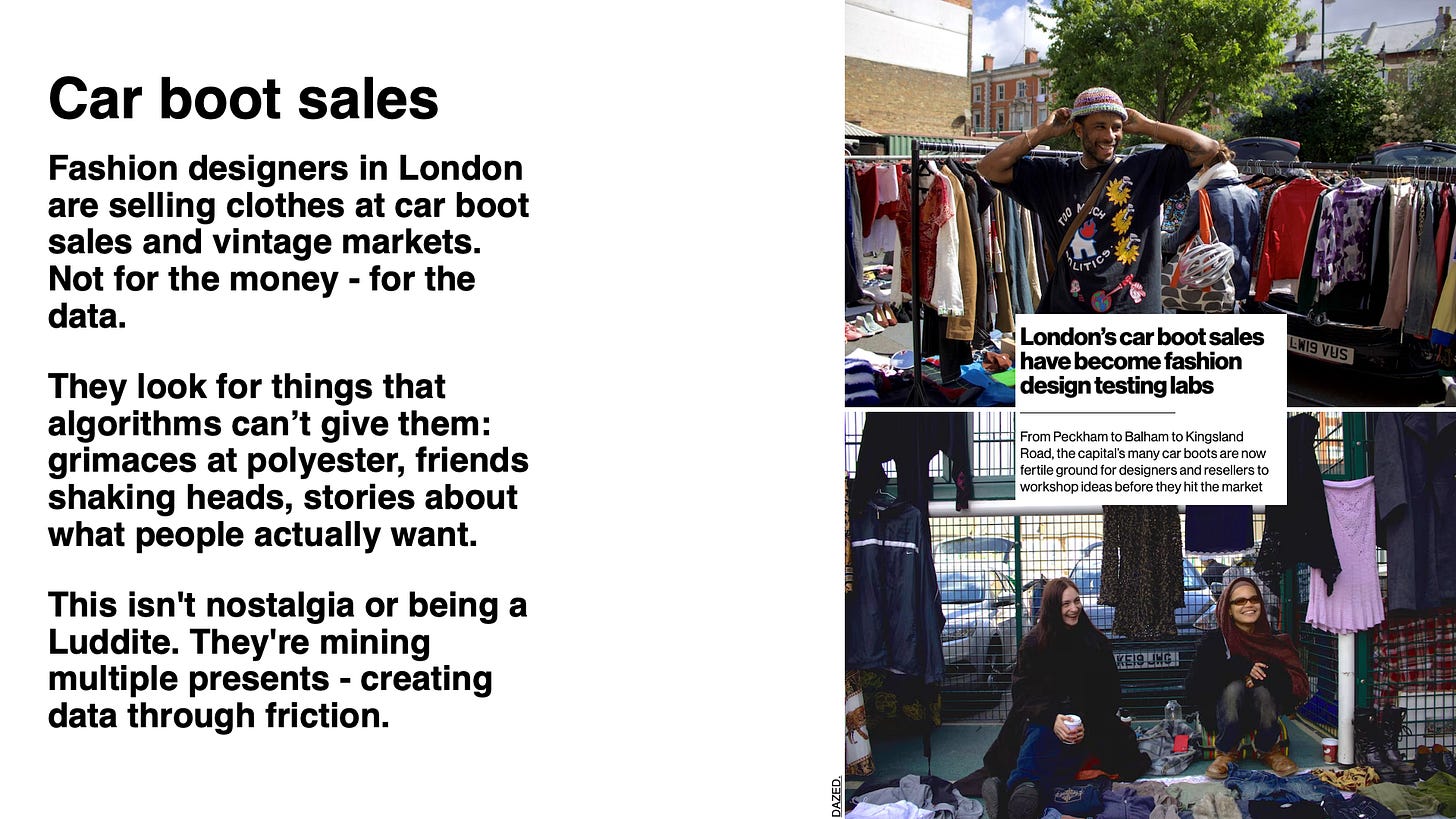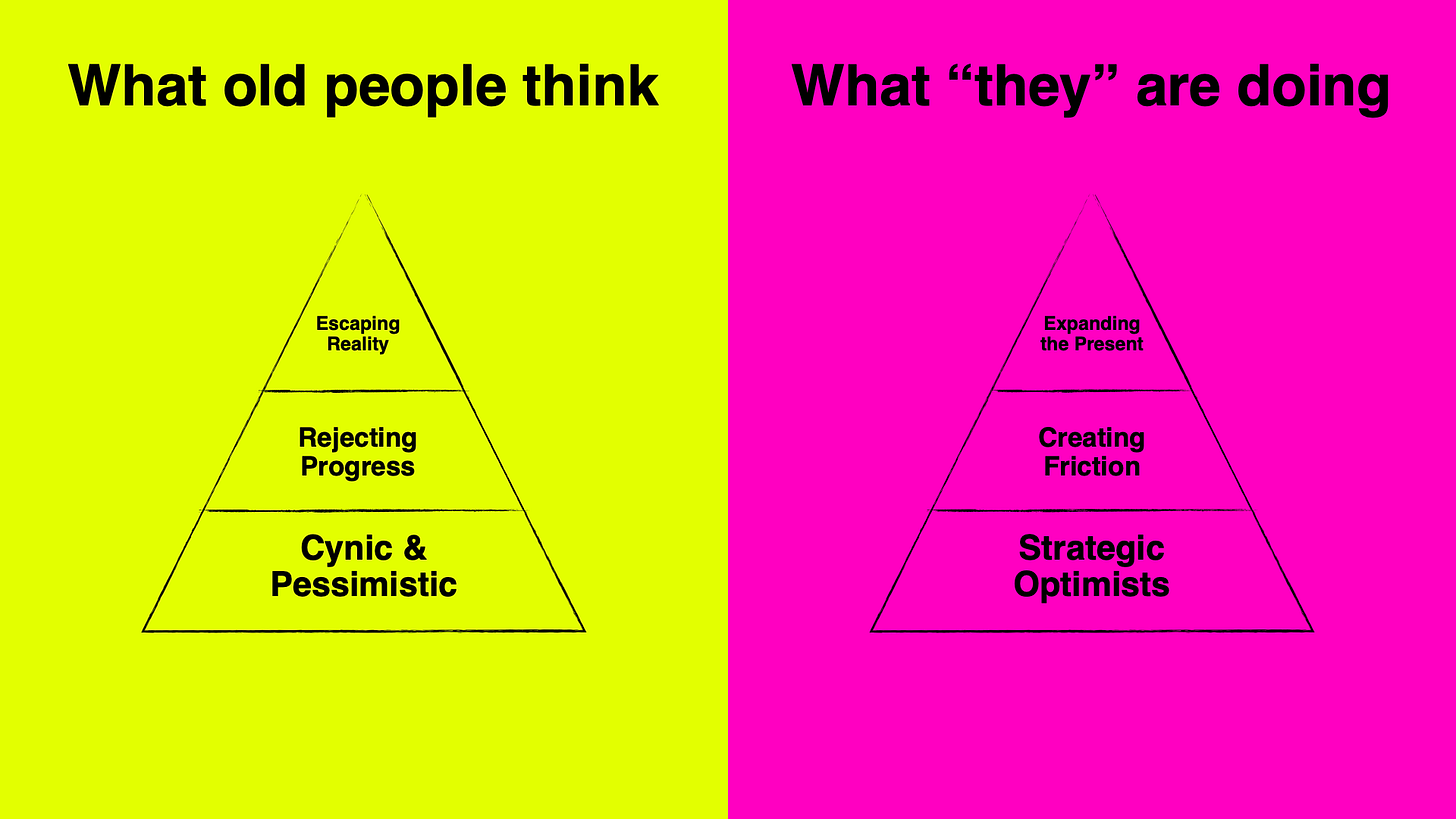Nike's misreading of fluidity
Gen Z oscillates between everything. It is not indecision.
Nike just changed "Just Do It" to "Why Do It?"—and in doing so, revealed how fundamentally brands misunderstand Gen Z's relationship with uncertainty.
The campaign, narrated by Tyler, the Creator, positions itself as understanding a generation paralyzed by overthinking. It catalogues the excuses: might rain, just ate, Mercury's in retrograde. Nike thinks they've decoded anxious procrastination. But they're mistaking fluidity for hesitancy.
The philosophical shift between these slogans is stark. "Just Do It" came from a place of ultimate determination—adapted from death row inmate Gary Gilmore's final words, "Let's do it," before his execution in 1977. Dan Wieden transformed that moment of grim finality into decades of aspirational messaging. It was about facing the ultimate with resolve. "Why Do It?" comes from the opposite place: hesitation, second-guessing, negotiation. One slogan emerged from confronting death; the other from avoiding life.
Gen Z doesn't live in permanent indecision. They're comfortable oscillating between states and conditions. They'll wear Balenciaga to the gym and Champion to a gallery opening. The question isn't "why do it?" but rather "which version of myself is doing this today?" They're not looking for brands to validate their uncertainty—they're looking for partners that provide motivation for specific moments, even when those moments contradict yesterday's behavior.
This generation treats identity like a strategy, not a demographic. What looks like pointless nostalgia to older observers—the vinyl collections, the film cameras, the car boot sales—is actually strategic optimism. They're not rejecting the future; they're excavating it. London fashion designers selling at vintage markets aren't there for the money but for the data: grimaces at polyester, stories about what people actually want. Information that algorithms can't provide. They're creating friction to generate insight.
Nike's attempting friendship when they should be claiming authority. There's a logical flaw in trying to become an equal to Gen Z. This generation doesn't want Nike to be their anxious friend—they have plenty of those. They want Nike to be the confident elder who's earned the right to say something definitive. By abandoning their authoritative position, Nike becomes less interesting to a generation that values authenticity precisely because they can spot performance immediately.
The real shift Nike struggles with isn't generational psychology but market structure. They're still the market leader, but that no longer means they dictate the story. The market has fragmented from monolithic culture into infinite niches. Every attempt to grab the entire market with one message makes big brands look like they're trying too hard.
What Nike should be asking isn't "why do it?" but "which tribes do we actually want to lead?" Because trying to be everything to everyone in 2025 is how you become nothing to anyone. The strongest brands moving forward won't chase cultural consensus but embrace cultural specificity.
Of course, in this fragmented landscape, it's almost impossible to know whether this campaign will succeed. Maybe Nike's reading is right. Maybe anxiety really is the defining characteristic of this moment. Maybe I'm the one misreading the room. But that's precisely the point: there is no single correct reading of Gen Z anymore. They're not a monolith waiting to be decoded but a collection of fluid identities that resist singular interpretation.
What I see is a generation of strategic optimists, expanding the present rather than escaping reality, creating friction rather than rejecting progress. They understand something that perhaps all of us—Nike included—are still learning: in a world of infinite choice, the question was never "why?"
It was always "which one?"





Very much here for this take! And the irony is that Nike doesn't fully embrace 'Why Do It?' in the advert itself. It still ends with 'Just Do It'. It's like they've added an asterisk to their flagship slogan to cover off all (generational) bases. Like putting on a pimple patch even though you have clear skin, just to put the youngers at ease.
It's also strange that they picked Tyler the Creator out of all people to do the voiceover. Granted, there's now a precedent of using musicians for their VOs (Doechii for 'So Win'). But what does Tyler have to do with sports? And he's a millennial. Why not a younger rapper like Baby Keem? Or have a Gen Z athlete like Sha'Carri do it. Even Naomi Osaka could resonate more, as a role model re: sports anxiety.
This whole advert has got me asking the same question back to Nike...